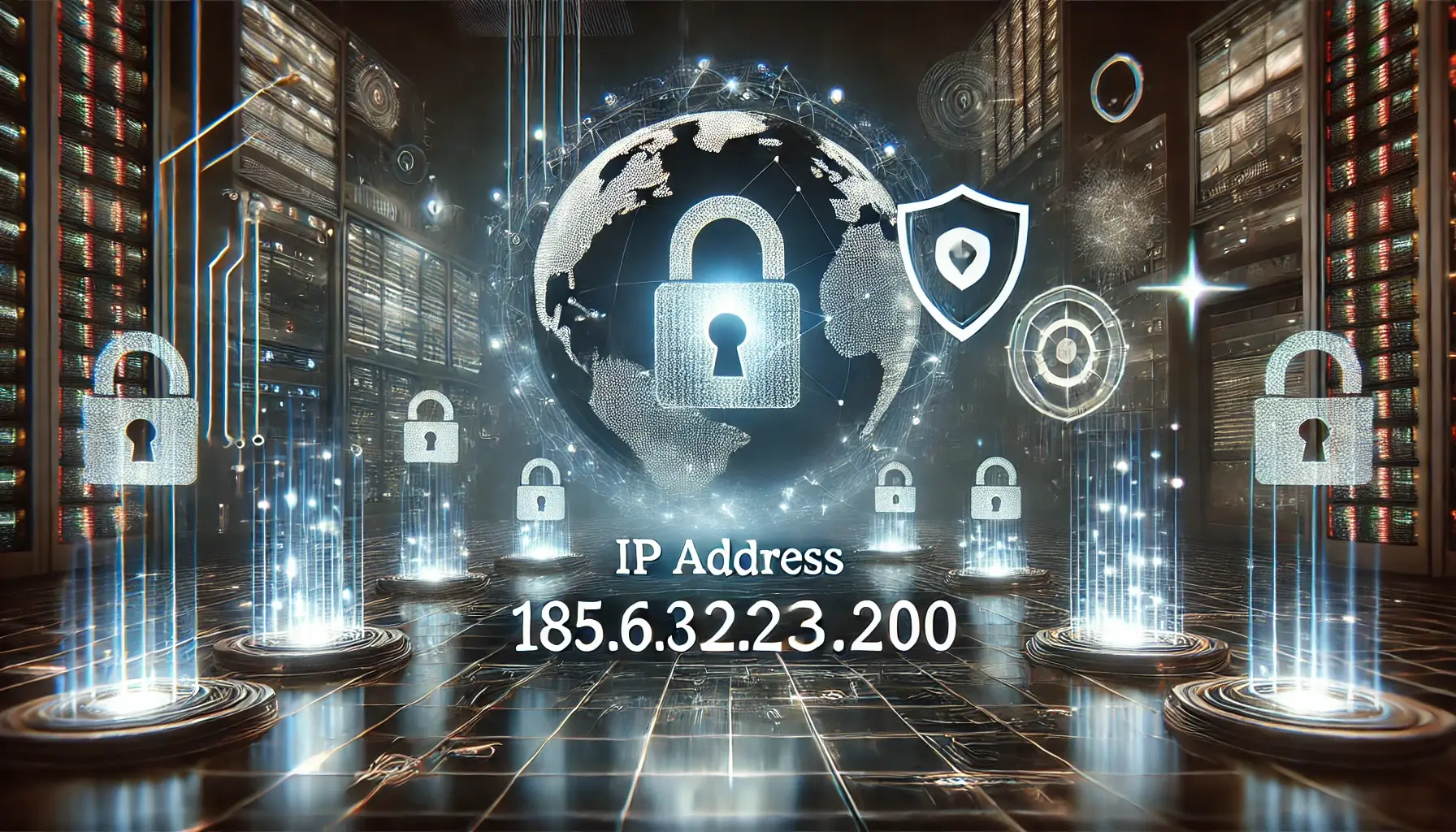How IP Address 185.63.2253.200 Affects Your Online Privacy?
The internet is rife with information being shared at all times, and each thing you do online has a corresponding digital footprint. The most important aspect of this footprint is your IP (Internet Protocol) address, which assists in identifying your device when visiting websites, services, or apps. But when your IP address is revealed or when a specific IP address, like 185.63.2253.200, is linked to some internet activities? Knowing how this IP address affects your online anonymity is important in the modern world.
What is an IP Address?
Before getting into the specifics of how a particular IP address such as 185.63.2253.200 impacts your privacy, first let us know what an IP address is. An IP address is a set of numbers that is unique and is given to each device that is connected to the internet. It is the identifier that your device has so that it can communicate with other devices on the network.
There are two classes of IP addresses:
- IPv4 (Internet Protocol Version 4) – The most widely utilized version, made up of four groups of numbers divided by dots, such as 185.63.2253.200.
- IPv6 (Internet Protocol Version 6) – More recent structure created to offer a greater range of IP addresses, as the range of IPv4 is depleting.
What is IP Address 185.63.2253.200?
The IP address 185.63.2253.200 seems to be in the format of IPv4, and it has four numerical parts. The address, as with any IP, points to a particular device on the internet, but what has it got to do with your internet privacy?
When your computer joins a website or a service, it gets out an IP address which is recorded by the server. Websites and services can trace your browsing history, location, and even if you are a repeat or first-time visitor based on your IP. If your device has an IP address such as 185.63.2253.200, your online identity and information are susceptible based on the service you are accessing and how your data is handled.
How Does an IP Address Influence Your Online Privacy?
Your IP address is like a digital address that can provide websites with a range of information about you. This includes:
- Geolocation Information: Websites and services can pinpoint your location based on your IP address. Although this doesn’t provide an exact address, it can narrow down your location to a city or even a neighborhood.
- Monitoring Your Activities: Websites monitor users by their IP addresses for analytics. Advertisers also target users with ads by their IP addresses. This implies your online interests and browsing behaviors can be monitored and profiled.
- Threats of Data Collection and Exposure: If your IP address is not masked behind a VPN (Virtual Private Network), it is vulnerable to cybercriminals, hackers, and malicious bodies. It raises the possibility of data breaches, identity theft, and cyberattacks.
The Privacy Risks of IP Address 185.63.2253.200
Now, let’s consider specifically the privacy issues inherent in 185.63.2253.200. Depending on where the address is used, it can be associated with many different dangers or privacy issues:
Tracking and Profiling:
As stated, one of the largest issues with revealing your IP address is that it can be tracked by websites and advertisers. As an example, this particular IP address can perhaps be linked to a business or service company which utilizes it for digital advertisements and user profiling.
Targeted Advertising:
The IP address could be employed to target advertisements according to your location or browsing habits. For example, if this address is associated with an ad network, it can be utilized to track you across websites, monitoring your interests and preferences.
Geolocation Threats:
With your IP being open, the websites are able to trace your location. Using an IP address like 185.63.2253.200, the attacker may get to discover more about where you are and the kind of services you use. Geolocation information may result in unwanted communication, fraud, or even a security intrusion.
How To Protect Your Privacy from IP Address Tracking
Understanding how much an IP address such as 185.63.2253.200 can impact your privacy, it’s time to take precautions to protect your online identity. Here are some simple tips to ensure your privacy:
Use a VPN (Virtual Private Network):
A VPN encrypts your web traffic and hides your original IP address. By directing your connection through a distant server, a VPN protects your location and information. This is among the best methods to maintain anonymous IP.
Use Proxy Servers:
Like a VPN, proxy servers help you mask your IP address by channeling your connection via a distant server. Though proxies can aid in keeping your identity private, they don’t encrypt data as a VPN will, making them less safe.
Enable HTTPS Everywhere:
Wherever possible, ensure you’re visiting websites with HTTPS encryption. HTTPS encrypts the information between your browser and the site, giving you a secure connection. It does not conceal your IP address, but it does make it more difficult for attackers to intercept your information.
Choose Browser Privacy Tools:
Certain browsers have integrated privacy tools or extensions that prevent third-party trackers and assist in concealing your IP address from advertisers. Tools such as browser cookies extensions can assist in reducing data collection and tracking.
Clear Your Browser History:
Clearing the browser history on a periodic basis can stop websites from gathering data associated with your IP address. Cookies and cache clearing is also a critical aspect of ensuring privacy.
The Importance of Anonymity in Today’s Digital World
With the digital age comes the compromise of online privacy. Hacking or online advertising, your personal details can be used against you if they’re made available. Each time you access a site or a service, your IP address leaves a possible entry point for firms to monitor what you do, collect information, and in some cases, take advantage.
Anonymity on the internet is important so that you are able to access websites and services without your every step monitored and tracked. For those who care about their online anonymity, you need tools such as VPNs, proxy servers, and secure communication channels to be able to have some kind of security and anonymity.
Why You Should Care About Your IP Address
It’s easy to ignore your IP address and its impact on your online security. However, given how much your personal data can be exposed, it’s crucial to recognize that your IP address plays a pivotal role in protecting your privacy. Whether it’s IP address 185.63.2253.200 or any other, taking steps to obscure your online identity from prying eyes can help mitigate risks related to identity theft, fraud, and unwanted data tracking.
By taking privacy-protecting steps and keeping up to date with how your online activity is being followed, you can protect your own information from improper use. Keep in mind that privacy isn’t simply a matter of hiding personal information from bad actors—it’s about gaining mastery over your own digital identity and digital presence on the net.
Conclusion
The IP address 185.63.2253.200 is a gateway to tracking, profiling, and potential exposure of your data. Its effect on your online privacy cannot be overstated, and it’s critical to take action to encrypt your connection using a VPN, proxies, and other privacy-enhancing measures. In an era where data privacy is increasingly compromised, taking measures to safeguard your IP address is one of the easiest and best means of defending your online actions and personal data.



